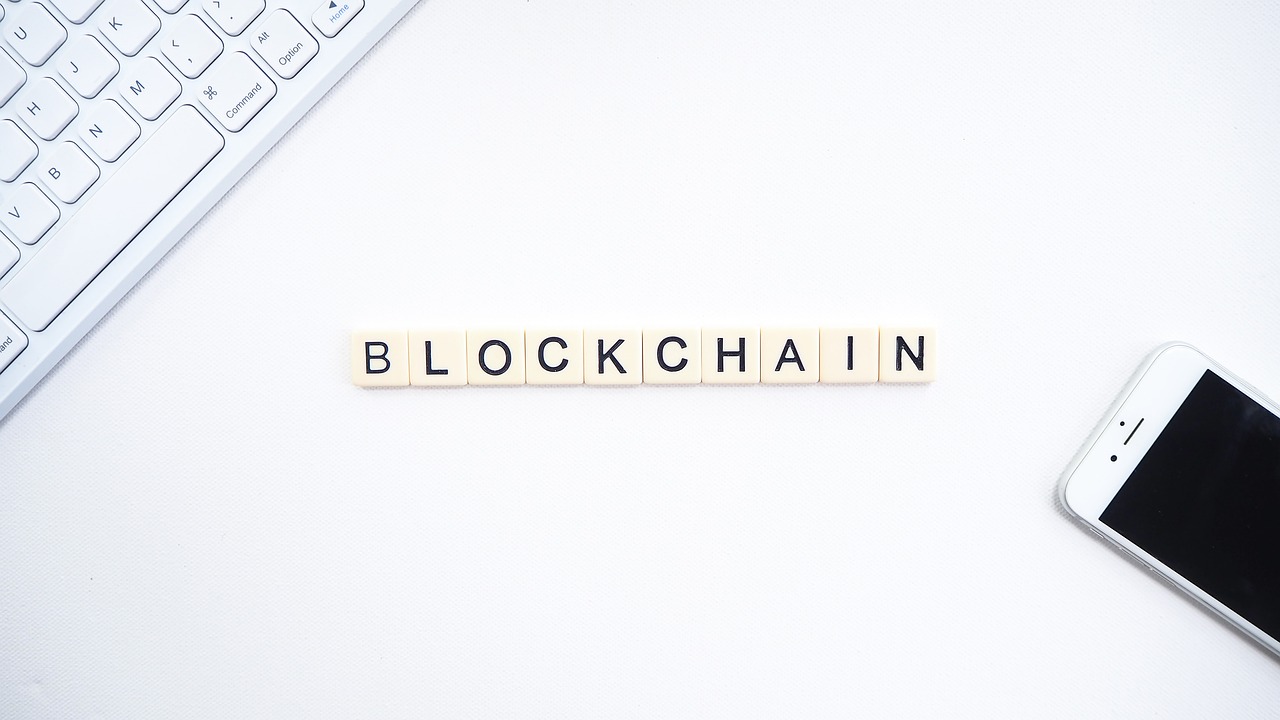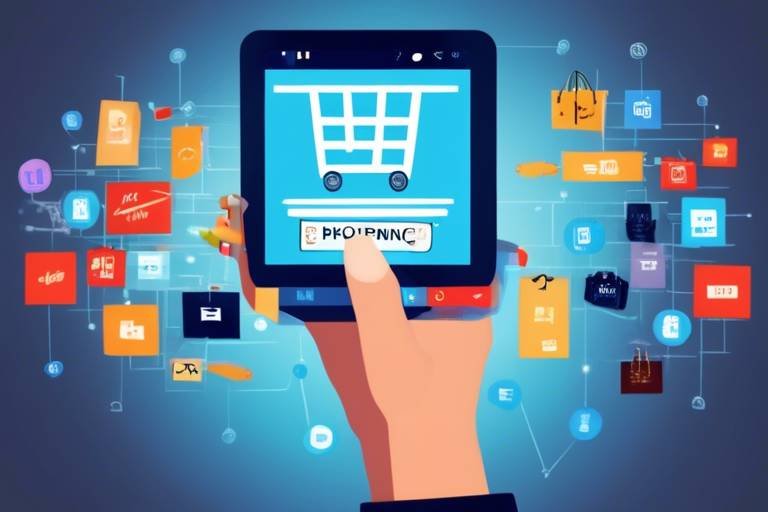The Role of Blockchain in Enhancing Corporate Social Responsibility
In today's world, where consumers are increasingly aware of the impact their choices have on society and the environment, businesses are under immense pressure to act responsibly. This is where Corporate Social Responsibility (CSR) comes into play. Companies are not just profit-making entities anymore; they are expected to contribute positively to society. Enter blockchain technology, a revolutionary tool that can significantly enhance CSR initiatives by promoting transparency, accountability, and stakeholder engagement. Imagine a world where every product you buy comes with a guarantee of ethical sourcing and sustainable practices. Sounds appealing, right? Well, blockchain is making that dream a reality.
Blockchain, at its core, is a decentralized ledger technology that records transactions across multiple computers in such a way that the registered information cannot be altered retroactively. This inherent feature of immutability ensures that once data is entered, it remains unchanged, creating a trustworthy record that all stakeholders can rely on. In the context of CSR, this means companies can provide verifiable proof of their ethical practices, thus fostering a culture of trust among consumers and investors alike.
But how does this work in practice? For instance, consider a company that sources coffee beans from various farmers. Traditionally, it might be challenging to trace the origin of those beans and ensure they were harvested ethically. With blockchain, every step of the supply chain can be recorded in real-time, allowing consumers to see exactly where their coffee comes from, how it was grown, and the conditions under which the farmers work. This level of transparency not only verifies ethical sourcing but also holds companies accountable for their supply chain practices.
Moreover, blockchain can facilitate better communication between companies and their stakeholders. Imagine a scenario where a company can share its CSR initiatives and progress in real-time through a blockchain platform. Stakeholders, including customers, employees, and investors, can access this information easily, leading to greater engagement and trust. This is particularly crucial in an age where consumers are more discerning than ever, often choosing brands that align with their values.
As we delve deeper into the various ways blockchain can enhance CSR, it's essential to recognize that while the technology offers numerous advantages, it also presents challenges. Implementing blockchain is not a walk in the park. Companies face hurdles such as high initial costs, regulatory uncertainties, and the need for industry-wide collaboration to achieve meaningful results. However, the potential rewards far outweigh these challenges, paving the way for a more ethical business landscape.
In conclusion, the integration of blockchain technology into corporate social responsibility initiatives is not just a trend; it’s a necessary evolution. Companies that embrace this innovation will not only enhance their transparency and accountability but also build stronger relationships with their stakeholders. As we move forward, the role of blockchain in CSR will likely expand, driving ethical practices and fostering trust in the corporate world.
- What is blockchain technology?
Blockchain is a decentralized ledger technology that securely records transactions across multiple computers, ensuring transparency and immutability. - How does blockchain enhance corporate social responsibility?
It promotes transparency in supply chains, allows for real-time tracking of sustainable practices, and improves stakeholder communication. - What challenges do companies face when implementing blockchain?
Challenges include high initial costs, regulatory compliance issues, and technological barriers such as integration with existing systems. - What is the future of blockchain in CSR?
As blockchain technology evolves, its potential to enhance CSR will grow, with companies that adopt it likely leading the way in ethical business practices.

Understanding Blockchain Technology
Blockchain technology is often described as a decentralized ledger that records transactions across many computers in a way that ensures the registered transactions cannot be altered retroactively. This remarkable feature not only enhances security but also promotes transparency and trust among stakeholders. Imagine a digital ledger that everyone can see but no one can tamper with—this is the essence of blockchain. The technology operates on a network of nodes, where each node holds a copy of the entire blockchain, making it nearly impossible for any single entity to manipulate the data without consensus from the rest of the network.
One of the most significant advantages of blockchain is its ability to provide real-time data that can be accessed by all parties involved. This means that companies can track their operations, from production to delivery, with unprecedented accuracy. For instance, when a product is manufactured, its journey can be recorded at every step, ensuring that all stakeholders are aware of its status. This level of transparency is crucial for organizations striving to enhance their corporate social responsibility (CSR) efforts, as it allows them to verify ethical practices and sustainability claims.
The technology operates using a series of blocks that contain transaction data. Each block is linked to the previous one, forming a chain—hence the name "blockchain." Once a block is filled with data, it is sealed and added to the chain. The entire network then updates to reflect the new addition, ensuring that everyone has the latest information. This process is not only efficient but also creates a permanent record that can be audited at any time.
Furthermore, blockchain can significantly enhance accountability within organizations. By providing an immutable record of transactions, companies can demonstrate their commitment to ethical practices and sustainability. This is particularly important in industries where supply chain integrity is paramount. For example, in the food industry, blockchain can help trace the origin of products, ensuring that they meet safety and ethical standards.
In summary, blockchain technology is a powerful tool that can revolutionize how companies approach their CSR initiatives. Its unique features—decentralization, transparency, and immutability—make it an ideal solution for enhancing trust and accountability in corporate practices. As organizations continue to explore its potential, we can expect to see a shift towards more ethical and responsible business operations.

Transparency in Supply Chains
In today’s fast-paced market, the demand for transparency in supply chains is at an all-time high. Consumers are becoming increasingly aware of the impact their purchasing decisions have on the world, and they want to know where their products come from and how they are made. This is where blockchain technology steps in as a game-changer. By enabling real-time tracking of products throughout the supply chain, blockchain provides a transparent view of the entire process, from raw materials to finished goods.
Imagine being able to trace the journey of your favorite coffee from the farm where it was grown, through the processing facilities, and finally to your cup. With blockchain, this level of visibility is not just a dream; it’s a reality. Each transaction is recorded on a decentralized ledger that is accessible to all stakeholders involved. This means that companies can verify ethical sourcing and labor practices, ensuring that their operations align with their corporate social responsibility (CSR) goals.
Moreover, the ability to monitor and report on sustainable practices is another critical aspect of transparency in supply chains. For example, companies can track metrics such as carbon emissions and resource usage, allowing stakeholders to hold them accountable for their environmental impact. This data can be made available in real-time, empowering consumers to make informed choices based on the sustainability of the products they purchase. Here’s how blockchain can help:
- Real-time data access: Stakeholders can access up-to-date information about product sourcing and sustainability practices.
- Immutable records: The data recorded on the blockchain cannot be altered, ensuring that the information is trustworthy.
- Enhanced collaboration: Different parties in the supply chain can communicate and share information seamlessly, fostering a culture of transparency.
As companies embrace blockchain technology, they not only enhance their transparency but also build consumer trust. When customers see that a company is committed to ethical practices, they are more likely to engage with the brand and support its initiatives. This leads to stronger brand loyalty, as consumers feel they are part of a movement that values ethical practices and sustainability.
To illustrate the impact of blockchain on supply chain transparency, let’s look at some case studies of companies that have successfully integrated this technology into their operations. For instance, a well-known apparel brand has implemented blockchain to track the origin of its cotton, ensuring that it is sourced from farms that adhere to fair labor practices. By sharing this information with consumers, the brand has not only improved its image but has also seen an increase in sales from ethically-minded shoppers.
In conclusion, transparency in supply chains is not just a buzzword; it’s a necessity in today’s business landscape. With blockchain technology, companies can achieve unprecedented levels of visibility and accountability, fostering trust among consumers and stakeholders alike. As more organizations adopt this innovative approach, we can expect a significant shift towards more ethical and responsible business practices.
1. What is blockchain technology?
Blockchain is a decentralized ledger technology that records transactions across multiple computers, ensuring that the information is secure, transparent, and tamper-proof.
2. How does blockchain enhance transparency in supply chains?
Blockchain allows for real-time tracking of products, providing stakeholders with access to reliable information about sourcing, sustainability practices, and labor conditions.
3. What are some challenges in implementing blockchain for corporate social responsibility?
Challenges include high initial costs, regulatory uncertainties, and the need for industry-wide collaboration to achieve meaningful results.
4. Can consumers really trust the information provided by blockchain?
Yes, because blockchain records are immutable and accessible to all stakeholders, which enhances the credibility of the information shared.
5. What industries can benefit from blockchain technology in terms of CSR?
While many industries can benefit, sectors such as agriculture, fashion, and food production have seen significant improvements in transparency and accountability through blockchain.

Tracking Sustainable Practices
In today's world, where environmental concerns are at the forefront of many discussions, tracking sustainable practices has become more crucial than ever. Companies are no longer just expected to produce goods; they must also be accountable for their impact on the planet. This is where blockchain technology steps in, acting as a beacon of hope for organizations striving to showcase their commitment to sustainability. Imagine a world where every product's journey—from raw materials to the final consumer—is transparent and verifiable. With blockchain, this vision is becoming a reality.
Blockchain offers a unique, decentralized ledger that records every transaction related to a product's lifecycle. This means that companies can monitor and report on various sustainable practices, such as:
- Carbon Emissions: By tracking emissions at every stage of production, companies can identify areas for improvement and set reduction targets.
- Resource Usage: Blockchain enables firms to log their resource consumption, ensuring they use materials efficiently and responsibly.
- Ethical Sourcing: Organizations can verify the origins of their materials, ensuring they are sourced from suppliers who adhere to ethical labor practices.
This level of transparency is not just beneficial for the companies themselves; it empowers stakeholders—consumers, investors, and regulators—to hold organizations accountable for their environmental footprint. Imagine being a consumer who can scan a QR code on a product and instantly access its entire sustainability report. This feature not only enhances trust but also encourages companies to strive for better practices, knowing that their efforts are visible to the public.
Moreover, the ability to track these sustainable practices through blockchain fosters a culture of responsibility within organizations. Employees become more aware of their company's environmental impact and are motivated to contribute to sustainability goals. When every stakeholder understands their role in this ecosystem, it creates a powerful synergy that can lead to significant positive changes.
In summary, tracking sustainable practices using blockchain technology is a game-changer for corporate social responsibility. It not only enhances transparency and accountability but also builds consumer trust and encourages ethical business practices. As more companies adopt this technology, we can expect to see a ripple effect, inspiring others to follow suit and ultimately leading to a more sustainable future.
1. What is blockchain technology?
Blockchain is a decentralized ledger technology that enables secure, transparent, and tamper-proof transactions. It records data across multiple computers, ensuring that the information is accessible and verifiable.
2. How does blockchain enhance corporate social responsibility?
Blockchain improves corporate social responsibility by providing transparency in supply chains, tracking sustainable practices, and facilitating better communication with stakeholders. This leads to increased accountability and trust.
3. What challenges do companies face when implementing blockchain?
Companies may encounter challenges such as high initial costs, regulatory uncertainties, and technological barriers, including integration with existing systems and the need for employee training.
4. Can consumers access information about sustainable practices through blockchain?
Yes, consumers can use technologies like QR codes to access detailed information about a product's sustainability practices, including its carbon footprint and sourcing information.
5. What is the future of blockchain in corporate social responsibility?
As blockchain technology continues to evolve, its potential to enhance corporate social responsibility will grow. Companies that adopt this technology are likely to lead the way in ethical business practices and stakeholder engagement.

Consumer Trust and Engagement
In today's world, where consumers are more informed and concerned about the ethical practices of the brands they support, transparency has become a crucial element in building trust. Blockchain technology serves as a powerful ally in this quest for transparency. By providing a clear and immutable record of a company's practices, blockchain can enhance consumer confidence in the products they purchase. Imagine walking into a store and knowing exactly where your food comes from, how it was produced, and the labor conditions under which it was made. This level of transparency is not just a dream; it is a reality made possible by blockchain.
When companies utilize blockchain to share information about their corporate social responsibility (CSR) initiatives, they effectively invite consumers into their world. This engagement fosters a sense of community and shared values. For instance, when a company can demonstrate its commitment to sustainable sourcing or fair labor practices through verified blockchain data, consumers are more likely to feel a connection to the brand. They are not just buying a product; they are supporting a cause. This emotional bond can lead to stronger brand loyalty and repeat purchases.
Moreover, engaging with consumers through blockchain can take many forms. Companies can utilize social media platforms to share their blockchain records, allowing consumers to see real-time data on their sustainability efforts. They can also create interactive platforms where consumers can ask questions and receive answers directly from the source. This two-way communication is vital in today's digital age, where consumers expect brands to be accessible and responsive.
To illustrate the impact of blockchain on consumer trust and engagement, consider the following table, which outlines the benefits of transparency through blockchain:
| Benefit | Description |
|---|---|
| Increased Trust | Consumers are more likely to trust brands that provide transparent information about their practices. |
| Enhanced Loyalty | Transparency fosters emotional connections, leading to stronger brand loyalty. |
| Consumer Engagement | Interactive platforms and real-time data keep consumers engaged and informed. |
| Accountability | Blockchain holds companies accountable for their claims, as information is verifiable. |
In conclusion, the integration of blockchain technology into corporate social responsibility initiatives is not just a trend; it is a fundamental shift in how companies interact with their consumers. By prioritizing transparency and engagement, businesses can build lasting relationships with their customers, ultimately leading to a more ethical and responsible marketplace.
- What is blockchain technology?
Blockchain is a decentralized ledger technology that enables secure and transparent transactions. - How does blockchain enhance corporate social responsibility?
By providing transparent and verifiable information about a company's practices, blockchain fosters trust and accountability. - Can blockchain increase consumer loyalty?
Yes, by promoting transparency and engaging consumers, companies can build stronger emotional connections that lead to loyalty. - What are the challenges of implementing blockchain?
Challenges include high initial costs, regulatory uncertainties, and technological barriers.

Case Studies of Successful Implementation
In the realm of corporate social responsibility (CSR), several pioneering companies have embraced blockchain technology to enhance their transparency and accountability. These case studies serve as powerful examples of how blockchain can transform business practices and foster trust among stakeholders.
One notable example is Everledger, a startup focused on creating a digital ledger for diamonds. By utilizing blockchain, Everledger enables the tracking of diamonds from their origin to the end consumer. This not only ensures that the diamonds are ethically sourced but also combats issues such as conflict diamonds. The transparency provided by blockchain allows consumers to verify the authenticity and ethical background of their purchases, ultimately fostering greater trust in the brand.
Another compelling case is that of Walmart, which has implemented blockchain technology to enhance its food supply chain. By adopting a blockchain-based system, Walmart can trace the journey of food products from farm to store in real-time. This capability not only improves food safety but also enhances accountability among suppliers. In the event of a food safety issue, Walmart can quickly identify the source of contamination and take necessary actions, thereby protecting consumers and maintaining its reputation.
Furthermore, Unilever has also ventured into blockchain to promote sustainable sourcing. The company has partnered with various stakeholders to create a blockchain platform that tracks the sourcing of palm oil, a commodity often linked to deforestation and unethical labor practices. By providing a transparent record of palm oil's journey, Unilever aims to ensure that its suppliers adhere to sustainable practices, thus reinforcing its commitment to ethical sourcing.
These case studies illustrate the transformative power of blockchain in enhancing corporate social responsibility initiatives. By providing transparency, these companies not only improve their internal processes but also build stronger relationships with consumers and stakeholders. As more organizations recognize the importance of ethical practices, the adoption of blockchain technology is likely to become a standard in CSR efforts.
- What is blockchain technology?
Blockchain is a decentralized ledger technology that ensures secure, transparent, and tamper-proof transactions. - How does blockchain enhance corporate social responsibility?
By providing real-time tracking and transparency, blockchain enables companies to verify ethical sourcing, monitor sustainable practices, and improve stakeholder engagement. - What are some challenges of implementing blockchain?
Challenges include high initial costs, regulatory uncertainties, and the need for industry-wide collaboration. - Can small businesses benefit from blockchain?
Yes, small businesses can leverage blockchain to enhance transparency and build trust with consumers, potentially leading to increased loyalty and sales.

Enhancing Stakeholder Communication
In today's fast-paced business environment, effective communication with stakeholders is paramount. Blockchain technology serves as a revolutionary tool that enhances this communication by providing a transparent and secure platform for sharing information. Imagine a world where every piece of data regarding a company’s corporate social responsibility (CSR) initiatives is accessible, verifiable, and tamper-proof. This is not just a dream; it’s a reality that blockchain brings to the table.
With blockchain, companies can create a shared ledger that all stakeholders can access. This means that information about CSR activities, such as sustainability efforts, ethical sourcing, and community engagement, can be communicated in real-time. Stakeholders, including customers, investors, and employees, can view this information without the fear of manipulation. This level of transparency fosters a culture of trust and accountability, which is essential for maintaining strong relationships with stakeholders.
Moreover, blockchain enables companies to track and report their CSR progress in a way that is easily understandable. For example, if a company claims to reduce its carbon footprint, stakeholders can verify this claim by accessing the blockchain records. This not only enhances credibility but also encourages companies to set higher standards for their CSR initiatives. As stakeholders become more informed, they can engage more meaningfully with the company, offering feedback, support, or even collaborating on future projects.
To illustrate the impact of blockchain on stakeholder communication, consider the following key benefits:
- Real-Time Updates: Stakeholders receive immediate updates on CSR initiatives, allowing for timely feedback and engagement.
- Increased Trust: The immutable nature of blockchain ensures that all information is accurate and reliable, building trust among stakeholders.
- Enhanced Collaboration: With transparent data sharing, stakeholders can work together more effectively on CSR projects, leading to better outcomes.
In conclusion, the integration of blockchain technology into corporate social responsibility not only improves transparency but also significantly enhances communication with stakeholders. By embracing this innovation, companies can foster a more engaged and informed stakeholder community, paving the way for sustainable and ethical business practices.
Q1: How does blockchain improve transparency in corporate social responsibility?
A1: Blockchain provides a decentralized and immutable ledger that allows stakeholders to access real-time information about a company's CSR activities, ensuring transparency and accountability.
Q2: Can blockchain help in verifying a company's sustainability claims?
A2: Yes, blockchain enables companies to track and verify their sustainability efforts, allowing stakeholders to confirm claims regarding ethical sourcing and environmental impact.
Q3: What challenges might companies face when implementing blockchain for stakeholder communication?
A3: Companies may encounter technological barriers, high initial costs, and regulatory compliance issues that can hinder the effective adoption of blockchain technology.

Challenges in Implementing Blockchain
Despite the promising benefits of blockchain technology in enhancing corporate social responsibility (CSR), its implementation is not without its challenges. Organizations looking to adopt blockchain must navigate a complex landscape filled with potential hurdles. One of the most significant challenges is the high initial cost associated with deploying this technology. From the infrastructure needed to support blockchain systems to the resources required for training employees, the financial investment can be daunting for many companies, especially smaller enterprises.
Moreover, the regulatory uncertainties surrounding blockchain can pose serious obstacles. Each country has its own set of regulations, and the legal landscape is still evolving. Companies must stay informed about these changing regulations to ensure compliance while also considering how their blockchain initiatives align with local laws. This constant need for vigilance can be overwhelming, particularly for organizations that operate in multiple jurisdictions.
Another challenge lies in the technological barriers that organizations may face. Integrating blockchain with existing systems can be a complicated process, often requiring significant adjustments to current workflows. Companies must not only invest in new technology but also ensure that their employees are adequately trained to use it. Without proper training, the effectiveness of blockchain solutions can be compromised, leading to wasted resources and missed opportunities.
Additionally, achieving industry-wide collaboration is crucial for meaningful results in CSR. Blockchain's decentralized nature means that for it to be effective, multiple stakeholders must agree on standards and practices. This can be particularly challenging in industries where competition is fierce, and companies may be reluctant to share information or collaborate on initiatives. However, without this collaboration, the full potential of blockchain in enhancing transparency and accountability in CSR may remain untapped.
In summary, while blockchain technology holds immense potential for improving corporate social responsibility, organizations must carefully consider and address these challenges. By investing in the necessary resources, staying informed about regulations, overcoming technological barriers, and fostering collaboration, companies can position themselves to successfully implement blockchain solutions that drive ethical business practices and stakeholder engagement.
- What are the main benefits of using blockchain for corporate social responsibility?
Blockchain enhances transparency, accountability, and stakeholder engagement, fostering trust and ethical practices. - How can companies overcome the high costs associated with blockchain implementation?
By strategically planning their investment, seeking partnerships, and starting with pilot projects, companies can mitigate costs. - What role do regulations play in blockchain adoption?
Regulations can either facilitate or hinder blockchain adoption, making it essential for companies to stay informed about legal requirements. - Is employee training necessary for successful blockchain implementation?
Yes, proper training is crucial to ensure employees can effectively use the new technology and maximize its benefits.

Technological Barriers
When it comes to implementing blockchain technology in corporate social responsibility (CSR) initiatives, organizations often face a myriad of . These challenges can create significant hurdles that may deter companies from fully embracing this innovative solution. One of the most pressing issues is the integration with existing systems. Many organizations have established processes and software that are deeply embedded in their operations. Transitioning to a blockchain-based system requires not only a significant investment in new technology but also a comprehensive understanding of how these systems can work together. This integration process can be both time-consuming and costly, leading to hesitation among decision-makers.
Additionally, the need for employee training cannot be overlooked. Blockchain technology is still relatively new, and many employees may lack the necessary skills or knowledge to effectively utilize it. Companies must invest in training programs to ensure that their workforce is equipped to handle the complexities of blockchain. This can further strain resources, particularly for smaller organizations that may already be operating on tight budgets.
Moreover, organizations may encounter issues related to data security and privacy. While blockchain is often touted for its security features, the reality is that any new technology poses risks. Companies must ensure that they are not only protecting their own data but also the information of their stakeholders. This can create a sense of apprehension, as organizations weigh the benefits of transparency against the potential risks of exposing sensitive information.
To summarize, the following are key technological barriers faced when adopting blockchain for CSR:
- Integration with Existing Systems: Difficulty in merging new blockchain solutions with current operational frameworks.
- Employee Training: Need for comprehensive training programs to build blockchain competency among staff.
- Data Security and Privacy: Concerns about protecting sensitive information while utilizing blockchain technology.
These barriers can create a daunting landscape for organizations looking to leverage blockchain for their CSR efforts. However, with careful planning and strategic investment, companies can navigate these challenges and unlock the transformative potential of blockchain technology.
Q1: What are the main benefits of using blockchain in corporate social responsibility?
A1: Blockchain enhances transparency, accountability, and stakeholder engagement, which fosters trust and ethical practices within organizations.
Q2: Are there any specific industries that benefit more from blockchain in CSR?
A2: While blockchain can benefit various sectors, industries with complex supply chains, such as food, fashion, and pharmaceuticals, often see significant advantages.
Q3: How can organizations overcome technological barriers when implementing blockchain?
A3: Companies can invest in integration solutions, provide comprehensive training for employees, and establish robust data security protocols to mitigate risks.
Q4: Is blockchain technology expensive to implement?
A4: The initial costs can be high due to technology investments and training, but the long-term benefits often outweigh these expenses, leading to improved efficiency and trust.

Regulatory Compliance
Navigating the complex world of regulatory compliance is no small feat, especially when it comes to integrating blockchain technology into corporate social responsibility (CSR) initiatives. Companies must tread carefully, as the legal landscape surrounding blockchain is still evolving. This means that staying informed about local and international regulations is crucial. For instance, businesses need to ensure that their blockchain applications comply with data protection laws, such as the General Data Protection Regulation (GDPR) in Europe, which imposes strict guidelines on how personal data is handled.
In addition to data protection, companies must also consider the implications of financial regulations. Many jurisdictions have specific rules regarding cryptocurrencies and digital transactions that can affect how blockchain is utilized. This regulatory maze can be overwhelming, but it’s essential for companies to establish a proactive approach to compliance. They should consider the following steps to navigate these challenges effectively:
- Conduct Regular Compliance Audits: Regularly reviewing blockchain operations can help identify potential compliance gaps.
- Engage Legal Experts: Consulting with legal professionals who specialize in blockchain can provide valuable insights into the regulatory environment.
- Stay Updated on Regulatory Changes: Keeping abreast of new laws and regulations is vital for maintaining compliance.
Moreover, collaboration with industry peers can also play a significant role in addressing regulatory challenges. By sharing best practices and insights, companies can collectively work towards establishing a clearer understanding of compliance requirements. This collaboration can lead to the development of industry standards that not only enhance transparency but also promote ethical practices across the board.
Ultimately, while the regulatory landscape may seem daunting, it also presents an opportunity for organizations to differentiate themselves. By committing to compliance and ethical practices, companies can build trust with stakeholders, demonstrating their dedication to responsible business practices. This trust can be a powerful asset, fostering deeper relationships with consumers and investors alike.
- What is blockchain technology?
Blockchain is a decentralized ledger technology that records transactions across many computers in a way that the registered transactions cannot be altered retroactively.
- How does blockchain enhance corporate social responsibility?
Blockchain enhances CSR by increasing transparency, accountability, and stakeholder engagement, allowing companies to verify ethical practices and sustainable operations.
- What are the challenges of implementing blockchain?
Challenges include high initial costs, regulatory uncertainties, and the need for collaboration across industries.
- Why is regulatory compliance important for blockchain?
Regulatory compliance ensures that blockchain applications adhere to legal standards, protecting companies from potential legal issues and enhancing their reputation.

The Future of Blockchain in CSR
As we look ahead, the future of blockchain technology in Corporate Social Responsibility (CSR) is not just promising; it's downright exciting. Imagine a world where every transaction is not only transparent but also verifiable in real-time. As blockchain continues to evolve, its ability to enhance CSR initiatives will become increasingly significant. Companies that adopt this groundbreaking technology are likely to set new standards in ethical business practices and stakeholder engagement.
One of the most compelling aspects of blockchain is its potential to foster trust among consumers and stakeholders. In a time when skepticism towards corporate intentions is at an all-time high, transparency can serve as the antidote. For instance, companies can use blockchain to provide consumers with direct access to information about their supply chains, labor practices, and environmental impact. This level of transparency is crucial for building credibility and trust, which are essential in today’s market.
Moreover, the integration of blockchain can lead to more efficient reporting mechanisms. Organizations can automate the process of tracking and reporting their CSR efforts, significantly reducing the time and resources spent on compliance. This not only enhances accountability but also allows companies to focus more on their core mission—making a positive impact on society and the environment.
However, the journey towards widespread adoption of blockchain in CSR is not without its challenges. Companies must navigate a complex landscape of technological barriers and regulatory compliance. The initial investment in blockchain infrastructure can be daunting, and organizations will need to ensure that their teams are adequately trained to utilize this technology effectively. Nevertheless, the long-term benefits far outweigh the initial hurdles.
In conclusion, the future of blockchain in CSR is bright. As organizations increasingly recognize the importance of ethical practices and stakeholder engagement, those that embrace blockchain will likely emerge as leaders in their industries. By leveraging this technology, companies can not only enhance their CSR initiatives but also contribute to a more sustainable and equitable world.
- What is blockchain technology?
Blockchain is a decentralized ledger technology that allows for secure, transparent, and tamper-proof transactions across various sectors.
- How does blockchain enhance CSR?
Blockchain enhances CSR by providing transparency in supply chains, improving accountability, and fostering better communication with stakeholders.
- What are the challenges of implementing blockchain in CSR?
Challenges include high initial costs, regulatory uncertainties, and the need for industry-wide collaboration to achieve meaningful results.
- Will blockchain technology continue to evolve?
Yes, as technology advances, blockchain's potential to enhance CSR initiatives will grow, making it a vital tool for ethical business practices.
Frequently Asked Questions
- What is blockchain technology?
Blockchain technology is a decentralized ledger system that allows for secure, transparent, and tamper-proof transactions. It operates on a network of computers, ensuring that all participants have access to the same information, which enhances trust and accountability.
- How does blockchain improve corporate social responsibility (CSR)?
Blockchain enhances CSR by providing transparency in supply chains, enabling real-time tracking of products, and ensuring ethical sourcing and labor practices. This visibility allows stakeholders to hold organizations accountable for their environmental and social impacts.
- Can blockchain help track sustainable practices?
Absolutely! With blockchain, companies can monitor and report their sustainable practices, such as carbon emissions and resource usage. This data can be shared with stakeholders, promoting accountability and encouraging companies to improve their environmental performance.
- How does blockchain build consumer trust?
By offering transparent information about their practices, companies can foster trust among consumers. When customers see that a brand is committed to ethical practices and sustainability, they are more likely to engage with and remain loyal to that brand.
- What are some challenges of implementing blockchain in CSR?
Implementing blockchain can be challenging due to high initial costs, regulatory uncertainties, and the need for industry-wide collaboration. Additionally, organizations may face technological barriers, such as integrating blockchain with existing systems and ensuring employees are trained to use the new technology.
- How does blockchain facilitate stakeholder communication?
Blockchain provides a reliable platform for companies to share information about their CSR initiatives and progress. This open communication fosters stronger relationships with stakeholders, as they can easily access data and updates regarding the company's social and environmental efforts.
- What is the future of blockchain in corporate social responsibility?
The future of blockchain in CSR looks promising! As the technology evolves, its potential to enhance ethical business practices and stakeholder engagement will grow. Companies that embrace blockchain are likely to lead the way in creating a more transparent and accountable business environment.



















